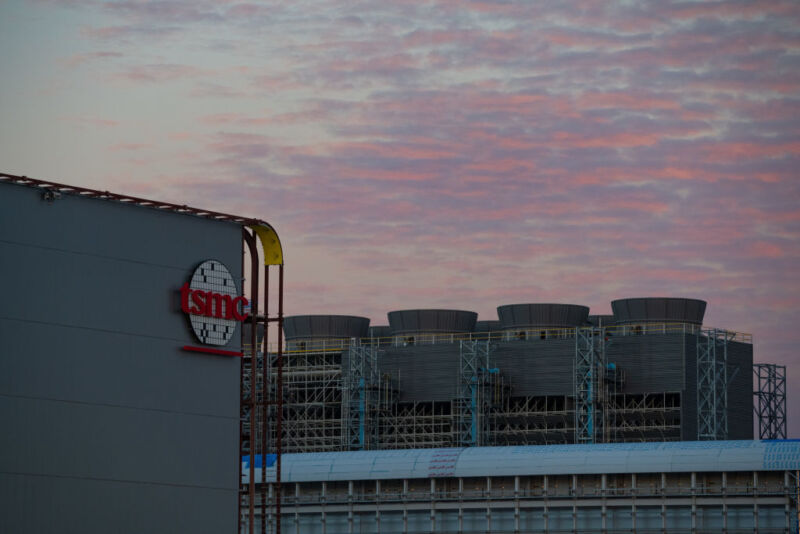
The Taiwan Semiconductor Manufacturing Company (TSMC) was supposed to have its first Arizona chip factory operational by late 2024 but now has confirmed significant delays. Primarily due to a shortage of technical workers with critical expertise in the US, TSMC projects to finish construction instead by 2025.
This is an “ominous delay,” Bloomberg reported, and it comes right when investment in AI is booming. TSMC is a leading supplier of AI chips, and the Biden administration is scrambling to quickly expand the US domestic chip industry. But the delay wasn’t necessarily unexpected, ASML Holding NV CEO Peter Wennink told Bloomberg. Wennink’s company is one of the world’s leading producers of chipmaking equipment, and he said that getting access to skilled workers is a common cause of setbacks when building semiconductor fabrication plants, also known as fabs.
“People don’t seem to realize that when we start building those fabs across the globe now and are everywhere, that skill has been refined over the last couple of decades in only a few places on the planet—predominantly in Taiwan and in Korea and a bit in China,” said Wennink. “Getting access to the requisite skills and skilled workers to keep the construction plan on time is a challenge.”
At the end of last month, TSMC confirmed it would be sending more Taiwanese workers to the US to ensure a “fast ramp up” of its $40 billion fab in Arizona, Reuters reported. A second Arizona fab is planned to be operational by 2026— the most advanced chip factory currently in production, Reuters reported—and, at least so far, it has not been confirmed whether the first fab’s delay will result in any further delays on completing the second fab.
Ars could not immediately reach TSMC for comment.
Undercutting the union?
However, Bloomberg noted that TSMC Chairman Mark Liu said on a conference call that in addition to a worker shortage, TSMC is experiencing other setbacks in the US. Perhaps most indicative that further delays could be coming, TSMC has cited US building costs being more expensive than costs in Taiwan as another setback.
Currently, TSMC’s solution seems to be finding ways to cut costs and send in more workers from Taiwan. The company has not disclosed exactly how many workers it has already sent or how many more may be coming. Reuters reported that TSMC confirmed in June that “the additional number who will be going has yet to be determined” and that Taiwanese workers “will only be in the state for a limited time.”
“Given we are now in a critical phase handling all of the most advanced and dedicated equipment in a sophisticated facility, we require skilled expertise,” TSMC told Reuters. The company also said that bringing in these workers “will not impact the 12,000 workers currently on-site every day or US-based hiring.”
A report yesterday from the progressive public policy-focused magazine, The American Prospect, indicates that there is already tension between US and Taiwanese workers, though. Union electricians working at the Arizona construction site felt “double-crossed,” The American Prospect reported, when TSMC sent in possibly more than 500 workers. Union representatives said that union electricians suspected that TSMC was attempting to replace them with overseas workers by eliminating union electricians’ incentive pay earlier this month—which caused 50 American workers to quit.
A week later, TSMC reinstated the incentive pay but ruffled feathers by offering the union contractor “25 non-union employees recruited from Taiwan to help solve their new labor shortage,” representatives told The American Prospect. They said that the union contractor refused to hire the non-union workers “since union contractors only use workers dispatched from the union hall” and predicted that TSMC would continue to struggle to recruit American workers unless the company raised wages.









